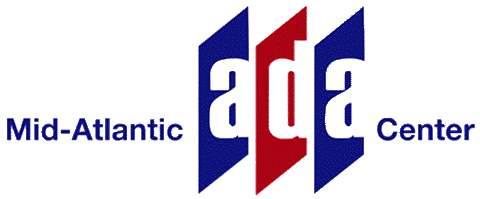(Printer-friendly PDF version | 209 KB)
(Large-print PDF | 249 KB)
(Versión en español)
The Department of Justice (DOJ) revised its ADA Title III (private businesses, a.k.a. places of public accommodation) regulations regarding examinations and courses, effective March 15, 2011. These regulations apply to applications, licensing, certification, or credentialing for education or for professions and trades.
Testing entities must:
- Offer exams and courses in a location and manner that is accessible to persons with disabilities, or offer alternative accessible arrangements.
- Administer examinations so that the results accurately reflect the individual’s aptitude or achievement level, not the impairment.
The revised regulations affect three areas in particular:
1. Requests for Documentation Must Be “Reasonable and Limited”
- Requests for proof of disability must be limited to the information necessary to show that the applicant needs the modification, accommodation, or auxiliary aid or service requested.
- Documentation must come from a qualified professional who has assessed the applicant and explained the need for the accommodation.
- The type of documentation needed will depend on the nature of the disability and the accommodation requested. Examples of documentation include a recommendation from a qualified professional, a psycho-educational evaluation, a history of a diagnosis, participation in a Special Education program, or a prior accommodation from another standardized testing agency.
- A “qualified professional” is a person who has a license or other credential in the relevant area of expertise. Examples include a doctor; psychologist; nurse; physical, occupational or speech therapist; vocational rehabilitation specialist; school counselor; or licensed mental health professional.
- The qualified professional must evaluate the applicant in person, not just review documents about the applicant.
2. Prior Modifications Received in Similar Situations
-
The following documents also can be used as evidence that accommodation is needed:
- Documentation of past modifications received in similar testing situations.
- Documentation of modifications that were provided in response to an Individualized Education Plan (IEP) or a Section 504 Plan.
3. Response to Requests for Modifications Must be Timely
Testing entities must respond to requests for accommodations in a timely manner so that persons with disabilities have the same level of opportunity and access as persons without disabilities.
|
Content was developed by the Mid-Atlantic ADA Center, and is based on professional consensus of ADA experts and the ADA National Network. |
|
|
TransCen, Inc. |
The contents of this factsheet were developed under grants from the National Institute on Disability, Independent Living, and Rehabilitation Research (NIDILRR grant numbers 90DP0089 and 90DP0086). NIDILRR is a Center within the Administration for Community Living (ACL), Department of Health and Human Services (HHS). The contents of this factsheet do not necessarily represent the policy of NIDILRR, ACL, HHS, and you should not assume endorsement by the Federal Government.
|
|
© Copyright 2017 ADA National Network. All Rights Reserved. |
|

.png)





